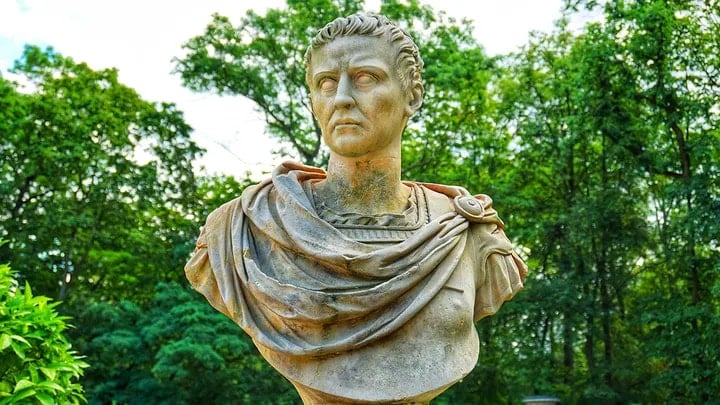Caligula destroyed his rivals with flowers: Historians reveal the emperor's method

Surprising information has emerged about the ancient Roman Emperor Caligula, remembered throughout history for his cruelty, madness, and bizarre behavior. A new academic study claims that Caligula was not only a dictator but also a figure with extensive knowledge of medicinal and poisonous plants. The study, co-authored by Florida State University Professor Trevor Luke and archaeologist Andrew Koh, offers a unique perspective on Roman history.
Caligula's Passion for Plants: Hobby or Survival Strategy?
The basis of the research lies in a long-overlooked account by the historian Suetonius. According to the story, a Roman senator, suffering from health problems, traveled to the Greek town of Antikyra to seek treatment with the poisonous medicinal plant hellebore. However, Caligula ordered the senator not to return and, in fact, ordered his death. The reason? Because the plant was no longer necessary for "someone for whom it had no benefit."
This incident is seen as an important clue that Caligula was not only deeply involved in political intrigue but also in poisonous plants.

Medicinal Plants and Poisons: Caligula's Silent Weapon?
Professor Luke suggests that Caligula may have been a "professional poisoner" who was well-versed in the knowledge of poisonous plants prevalent in antiquity. The research cites evidence that Caligula was a leader with a penchant for herbal remedies and toxic plants, much like Alexander the Great, Attalos III of Pergamum, and King Mithradates VI of Pontus.
Antikyra operated like the "Mayo Clinic" of ancient Rome. People who came here hoped to receive treatment through alternative medicine. According to ancient sources, the hellebore used in this town was one of the most effective laxatives of its time.

Caligula's "Herbology": Was It a Political Weapon?
It's thought that Caligula's interest in herbal knowledge may have been more than just a hobby. According to Luke's interpretation, sudden and mysterious deaths in Caligula's family—for example, those of his father-in-law, Germanicus, and his brother-in-law, Lepidus—may have led him to study such plants for self-preservation. Thus, Caligula's interest in herbs may have been a result of his survival instinct, not his madness.
Suetonius's Quest for Truth
Researchers emphasize that these narratives may be "shockingly" constructed, but they may also contain grains of historical truth. While Suetonius's writings may have served as propaganda, they also provide important data underscoring Caligula's interest in poisonous plants.

Caligula, the mad emperor of ancient Rome, may not have been as "mad" as he appeared. His interest in plants may not have been merely a quirk, but also a form of political strategy and self-preservation. As history is rewritten, such details could radically alter our perception of the past.
Follow us so you don't miss out on these historical secrets. We're here on Discover with "surprising but true" news!
SÖZCÜ





